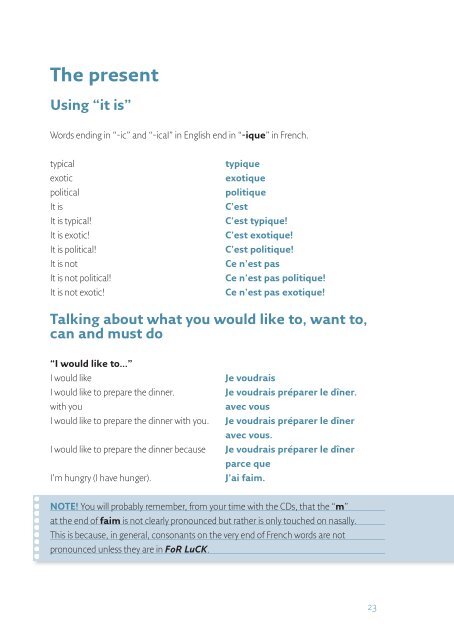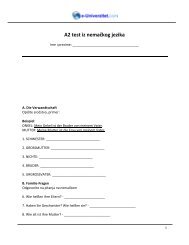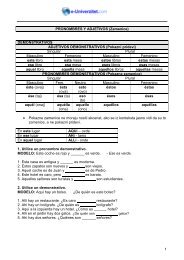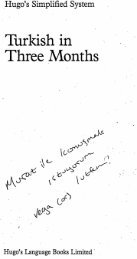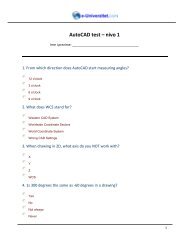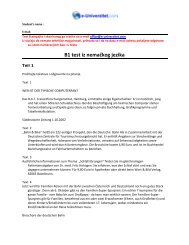Collins Paul Noble French booklet.pdf - Centar za edukaciju i ...
Collins Paul Noble French booklet.pdf - Centar za edukaciju i ...
Collins Paul Noble French booklet.pdf - Centar za edukaciju i ...
Create successful ePaper yourself
Turn your PDF publications into a flip-book with our unique Google optimized e-Paper software.
The present<br />
Using “it is”<br />
Words ending in “-ic” and “-ical” in English end in “-ique” in <strong>French</strong>.<br />
typical typique<br />
exotic exotique<br />
political politique<br />
It is C’est<br />
It is typical! C’est typique!<br />
It is exotic! C’est exotique!<br />
It is political! C’est politique!<br />
It is not Ce n’est pas<br />
It is not political! Ce n’est pas politique!<br />
It is not exotic! Ce n’est pas exotique!<br />
Talking about what you would like to, want to,<br />
can and must do<br />
“I would like to…”<br />
I would like Je voudrais<br />
I would like to prepare the dinner. Je voudrais préparer le dîner.<br />
with you avec vous<br />
I would like to prepare the dinner with you. Je voudrais préparer le dîner<br />
avec vous.<br />
I would like to prepare the dinner because Je voudrais préparer le dîner<br />
parce que<br />
I’m hungry (I have hunger). J’ai faim.<br />
NOTE! You will probably remember, from your time with the CDs, that the “m”<br />
at the end of faim is not clearly pronounced but rather is only touched on nasally.<br />
This is because, in general, consonants on the very end of <strong>French</strong> words are not<br />
pronounced unless they are in FoR LuCK.<br />
23


